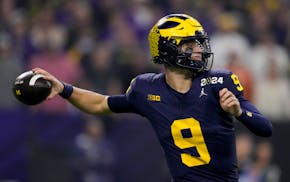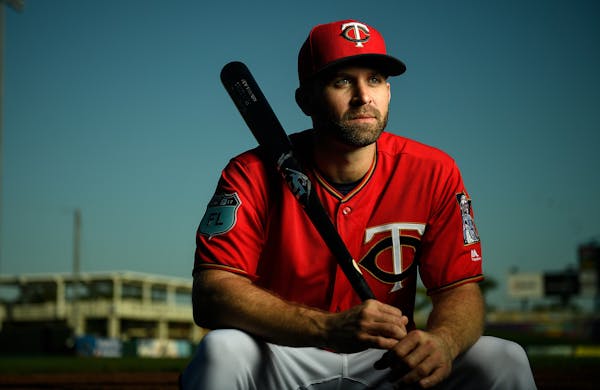Fort Myers, Fla. – Observations on the Twins from Florida, where the weather was beautiful and the baseball was not:
You hear two things around Twins camp when you ask about Glen Perkins: that he's behind on his rehabilitation schedule, and that nobody expects him to regain his closer's role.
He's in the last year of his contract and is having trouble recovering from shoulder surgery. He may not be ready to pitch in the majors until May or June, meaning he could be one major setback away from calling it a season … and a career.
• • •
Spring training stinks if you care about baseball.
If you love the sun and the ballparks, the beaches and the atmosphere, spring training is a wonderful experience. If you want to see major league players playing extended innings against other major league players, it is a disappointment.
The games are awful. This year's excuse was the lack of big-leaguers in camp because of the World Baseball Classic, but poor lineups were a problem long before the WBC was invented. And this is a problem without a solution, because teams are obligated to prepare for the season, not entertain fans in March.
• • •
The Twins have had one decent season since 2010 — when they won 83 games in 2015 with Torii Hunter altering their clubhouse chemistry.
The clubhouse is back to being a quiet zone. Brian Dozier tries to lead quietly, but his future with the organization is uncertain. Miguel Sano was once projected as a leader, but he spends most of his time on his phone. The next true leader of this team will have to be Byron Buxton, and that will happen only if he plays well and continues to come out of his shell.
• • •
The best aspect of the WBC is the passion with which Latin American teams play. American baseball has traditionally favored stoics. Should big-league teams dance in the dugouts?
"Why would you not want that?'' said Twins pitcher Ervin Santana, who played for the Dominican Republic. "It's passion. It's fun.''
• • •
Twins senior director of communications Dustin Morse worked with the Netherlands during the WBC. Here were his flights from that point until he returned to Twins camp last week:
Fort Myers-Atlanta-Phoenix-Seattle-Seoul-Tokyo-Phoenix-Los Angeles-Atlanta-Fort Myers. His flight from Tokyo to Phoenix left at 2 a.m. on a Friday and landed at 10 p.m. on a Thursday.
The Netherlands advanced to the semifinals before Twins outfielder Eddie Rosario beat the Dutch with a sacrifice fly for Puerto Rico. Morse was on the field and gave Rosario a hug.
The Dutch played in the Tokyo Dome, which is a bigger version of the Metrodome. Morse saw other countries warm up much more intensely than Americans do, erecting nets in the outfield during batting practice for stretching and calisthenics, and doing soft-toss behind the batting cage.
He saw Chinese Taipei fans try to pass a massive banner around the stadium. He heard constant songs, saw fans leaning forward on every pitch, watched Japanese players stop to acknowledge standing ovations when returning to the field after a big hit. "In Korea, it felt like a carnival,'' he said.
"In international play, everyone is so far out of their comfort zone that it brings the team together,'' Morse said. "There are many more team dinners, much more sticking together as a group.''
Morse was shocked when the Korean manager pulled his right fielder in the middle of an inning after a misplay. And he said he has a better understanding of why former Twin Tsuyoshi Nishioka would give up a year of big-league salary to return to Japan, where he is treated like a god.
"I was struck that there are all of these countries that are so passionate about baseball, and yet they all want to play in the American major leagues,'' Morse said. "It reminded me that we're spoiled. We get to watch the best of the best for seven months a year.''
Jim Souhan's podcast can be heard at MalePatternPodcasts.com. On Twitter: @SouhanStrib • Email: jsouhan@startribune.com

Souhan: Wolves fans made Game 1 special. Now bring on Game 2.

Souhan: Should Vikings even consider McCarthy in NFL draft?

Souhan: NAW erases Suns' lead, Game 1 advantage with big performance

Souhan: This is KAT's chance to prove Flip Saunders was right


